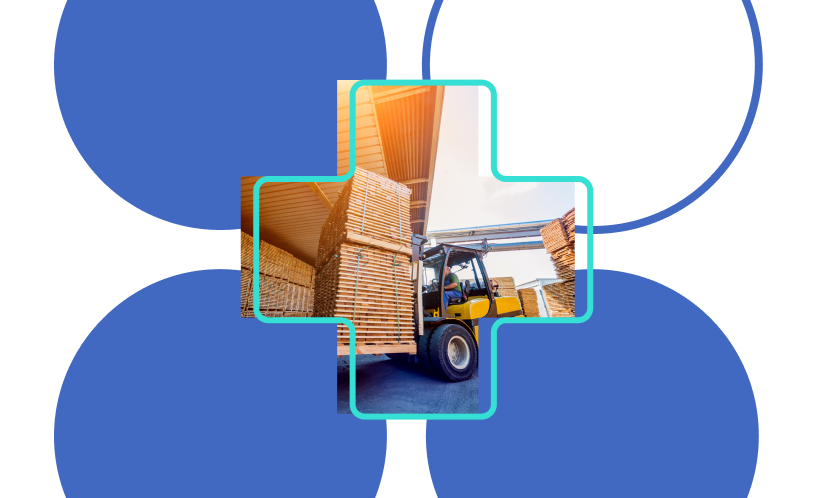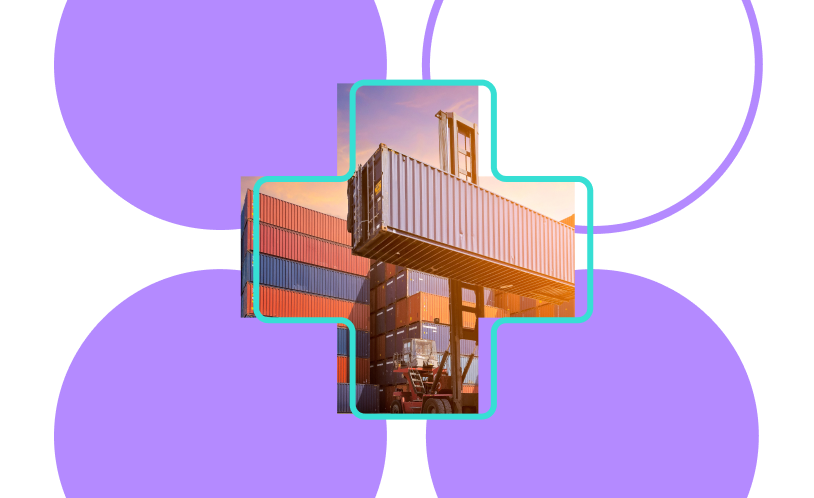Global shipping is getting easier all the time.
But moving goods around the world is still a complex dance of managing international regulations, securing transportation, and keeping a full supply chain running.
This is where freight forwarders come in.
Read on to learn what services freight forwarders provide and how to book the best one for your business.
Looking for quotes from vetted freight forwarders?
What is a freight forwarder?
A freight forwarder is a service provider that helps businesses ship their goods.
Freight forwarders are not carriers, meaning they neither own nor operate the vessels responsible for transporting freight. Rather, they serve as agents to importers and exporters, handling logistics processes on their behalf including booking space with carriers, securing warehouse space, getting insurance, and more on their client’s behalf.
Here are some of the specific services freight forwarders provide:
Arranging freight transportation
Forwarders provide end-to-end transportation solutions and coordinate cross-border transit.
They help plan transportation using land, air, sea, and rail. Freight service providers make sure your shipments move efficiently while keeping cost, speed, and reliability in mind.
Providing freight management solutions
Along with arranging transportation, freight forwarders also assist with other freight-related services like freight packaging, labeling, loading and unloading, and consolidation/deconsolidation.
If you’re facing peak season or another supply chain disruption, freight forwarders can help you mix and match shipping modes and routes to keep your freight moving.
READ MORE: Top Freight Forwarders in 2023
Arranging warehousing, storage, and distribution
Depending on the scale of their services, many freight forwarders help businesses with storage and distribution solutions.
Some freight forwarding services even include last-mile delivery and reverse logistics options.
Helping with proper documentation
Paperwork can be a hassle for importers and exporters.
Freight forwarders help in preparing required documents related to your shipment, such as the commercial invoice, bill of lading, packing list, letter of credit, power of attorney, and any special certificates required by partner government agencies.
Forwarders can also help identify the correct HS code for your goods.
Assisting with customs clearance
International trade regulations and customs requirements are complex.
Experienced freight forwarders help tackle customs clearance procedures such as securing customs bonds, purchasing insurance, getting a customs declaration sheet, obtaining a country of origin certificate, and notifying the destination port about shipment arrival.
Freight forwarders often partner with customs brokers to provide these services.
Maximizing cargo protection
As an importer or exporter, ensuring the safety of your shipments is a top priority. Freight forwarders can help with insurance coverage to ensure financial protection in case of unexpected events during shipping.
Coverage options offered by freight forwarders can vary, but they generally include protection against loss, damage, and theft. This can provide peace of mind for importers and exporters, knowing that their valuable goods are protected and that they will be compensated if anything goes wrong during transport.
Providing reliable tech support to shippers
For many companies, tech has become a vital component of supply chain management.
Many forwarders can provide real-time shipment tracking, operational visibility, CRM solutions for supply chain management, and data tracking.
Ready to get your goods moving?
How to book freight forwarder services
1. Determine your shipping needs
Before looking for a freight forwarder, consider any particular needs you have for the type of goods you plan to ship, as well as your origin, destination, and timing requirements. This will help you choose the right freight forwarder.
2. Research and select a freight forwarder
When you research forwarders, try to find the best match for your business. Consider a forwarder’s experience, reputation, pricing, specific expertise, industry served, and services offered. Getting references from other businesses in your network is a good idea.
3. Request a quote based on services required
Once you’ve selected a freight forwarder, discuss your requirements with them to get a freight quote. Provide details such as the type of shipment, origin, destination, shipping terms, and any specific conditions you have.
Use the Freightos.com marketplace to compare quotes easily
Many importers and exporters find that using a freight marketplace saves them time and money because it allows them to instantly compare prices from different forwarders while simultaneously getting a sense of market rates.
If you book on Freightos.com, you can enter your shipment details and search rates instantly. You won’t have to wait for returned phone calls or emails – you can just choose the timing and pricing that works best for your shipping needs.
Freight forwarding services: an overview
Here’s a quick graphic overview of the parts of the shipping process forwarders manage:

CONTINUE READING: How to Find a Freight Forwarder in China



